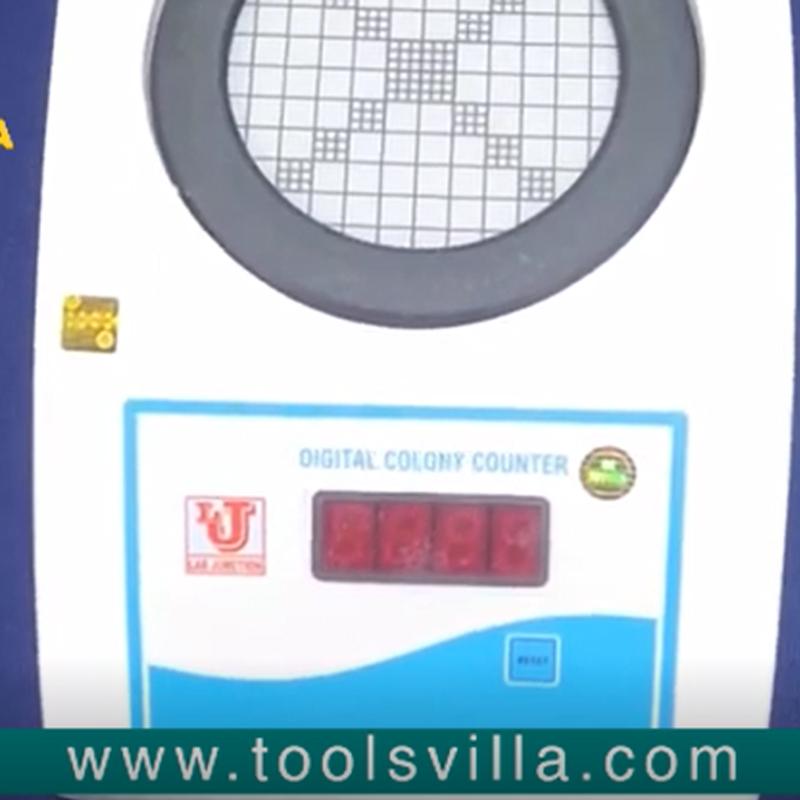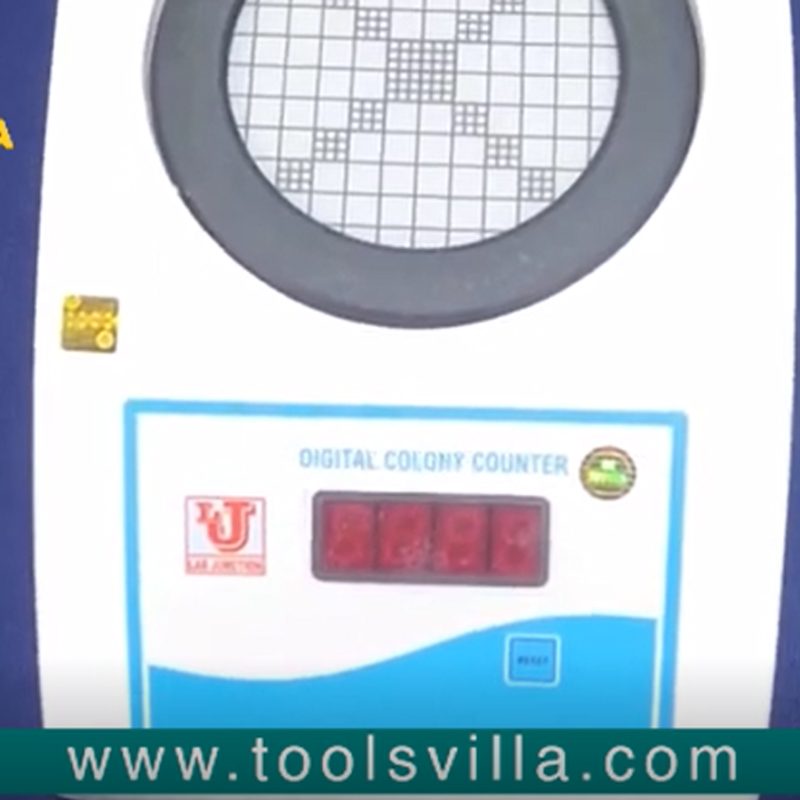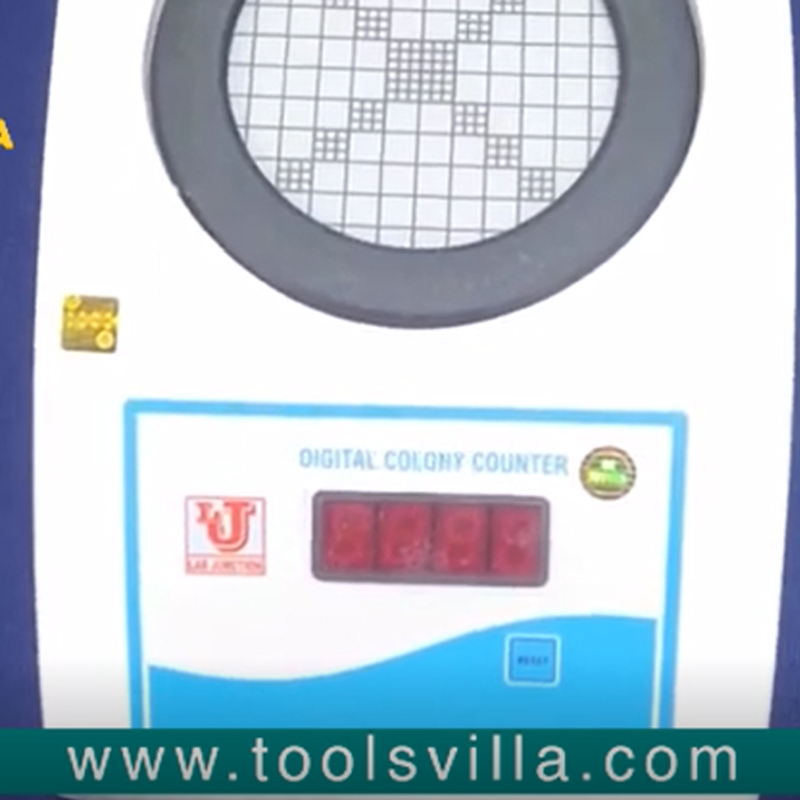- Farm & Garden
- Pumps & Motors
- Food Processing
- Workshop, DIY & MRO
- Lab & Measuring Tools

<
>
Brand: Lab Junction
Lab Junction Colony Counter, Range 0 to 999999 for Determination of Bacteria LJ-1363 as per Quality Norms
SKU: TB-LA-47099 Delivery By: Feb 26 - Feb 28
Delivery By: Feb 26 - Feb 28 




MRP : ₹14500 ₹9489
35% OFF!
 Delivery By: Feb 26 - Feb 28
Delivery By: Feb 26 - Feb 28 
Easy Return
& Refund
& Refund

Quality
Assurance
Assurance

Trusted
Delivery
Delivery

After Sales
Assistance
Assistance

Buyer
Protection
Protection
₹9489 (Including GST)
MRP : ₹14500
35% OFF!
Get Extra ₹142 OFF on Prepaid Orders
QTY :
-
1
+
Short Description
Lab Junction Colony Counter, Range 0 to 999999
for Determination of Bacteria LJ-1363 as per Quality Norms
for Determination of Bacteria LJ-1363 as per Quality Norms
Country of origin: India
Specifications
- Brand: Lab Junction
- Model : LJ-363
- Display : LED 6 Digit, 7-Seg
- Dish Size : 110 mm Magnification x 1.7 Surface Magnification
- Power : 230 V ± 10% AC, 50 Hz
- Dimensions : 1260 x 220 x 168 mm (L x B x H) (Approx.)
- Weight : 3 Kg (Approx.)
Description
Microprocessor Colony Counter is a solid state microcontroller based instrument designed for quick and accurate counting of bacterial & mould colonies in petri dishes. The system has 4 soft touch membrane type keys for ease of operation. It has a ‘Reset’ key to reset the digital count. Any unwanted count can be removed by pressing the ‘Correct’ key. A built-in averaging facility allows the calculation of average colony counts using multiple dishes. It has the storage facility for 40 result-counts which are retained in the memory even when the instrument is switched off.
Features
:- Readout 0 – 999999
- Count Correction Facility
- Result-Count Storage
- Seven Segment LED Display
- Auto Marker Pen
- Audible Confirmation of Each Count
- Uniform Glare Free Illumination
- Wolffhugel Glass Grid with Focusing Facility
- LED Based Illumination
Accessories
:- Marking Pen
- Magnifying Lens
- Lens Holder
- Operation Manual
- Dust Cover
Applications
:- Microbiology labs : counting bacterial or fungal colonies on agar plates for culture enumeration.
- Quality control labs in food, beverage, pharmaceuticals where microbial load is measured.
- Environmental labs for sample plate counts (e.g., water, air, surface monitoring).
- Educational and training labs for microbiology courses showing colony counting techniques.
- Clinical diagnostic labs where plate count methods are used (e.g., sterility testing, microbial growth assays).
- Research labs performing colony formation assays (e.g., cell culture, microbiology research).

Select attribute














